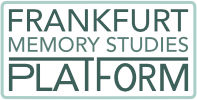Transcultural Memory and the Migration Film: Asian American Cinema and its Performance at Film Festivals (Erin Högerle)
This dissertation project explores how transcultural memory is produced in the migration and diasporic film and how these films are performed at film festivals. It assumes that film is one of the central media able to store and represent cultural memory, greatly influencing the way we imagine the past and thus understand the present. In line with recent developments in memory studies, the project highlights the transculturality of memory, pointing to the necessity to view memory as something that is constantly in flux and on the move, moving across national and cultural borders. The project is interested in how such cinematic memory travels, emphasizing the media-specific forms of memory, but also in where and to whom it travels, underlining the widespread dissemination of cinematic memory, as well as its transculturality.
The investigation involves a close reading of a selected corpus of fictional representations of migrant and diasporic experience within the medium film, bringing into focus the specific film language that produces transcultural memory, i.e. narrative structure, aesthetics and generic mode, in order to understand how and which memories are incorporated in the films. Following the analysis, the dissertation will then bring into view how these memories are performed at film festivals and embedded in categories and programs, based on the two premises that films carry the potential to become memory objects, but that this potential can only be activated through human interaction with the object, and that film festivals provide an opportunity for this activation through the programming and screening of films. The project’s case studies are selected Asian American films and Asian American film festivals such as CAAMFest, Los Angeles Asian Pacific Film Festival (LAPFF), San Diego Asian Film Festival (SDAFF).
The dissertation assumes that festivals function as framing mechanisms for migration films and, thus, cultural memory, asserting further that festivals have the potential for producing and transmitting their own memories, that may interact, conform or conflict with the memories on screen. Considering that film festivals cannot be analyzed as closed structures but must be understood as open networks comprising of a multitude of actors (e.g. media, institutions, locations), this dissertation will look at the actors or memory agents shaping the festival’s narratives and memory production.


